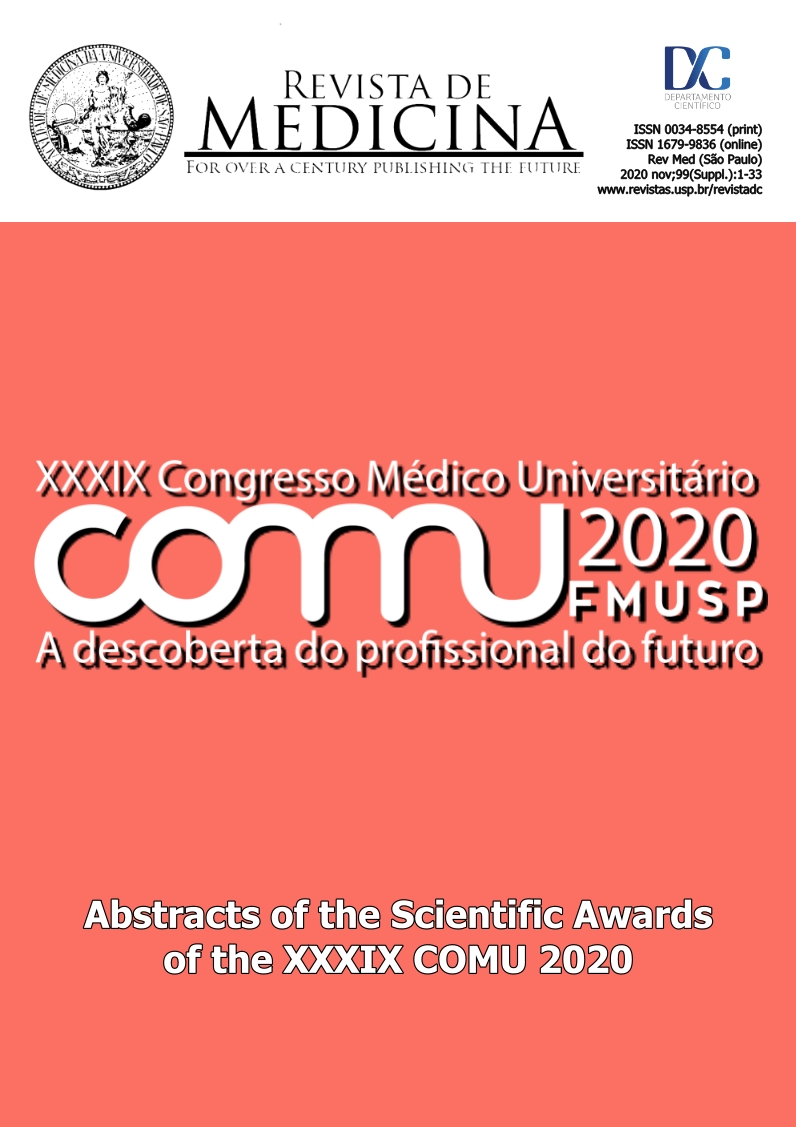Awareness related to value-based health care among Brazilian Medical Students
DOI:
https://doi.org/10.11606/issn.1679-9836.v99iSupplp18-18Palavras-chave:
Value-based health care, Medical students, SurveyResumo
Introduction: The steep global increase in healthcare costs demands a transition from the current fee-for-service to a Value-Based Health Care (VBHC) Model. According to Porter, value is defined as the outcomes that matter to patients over the costs for a full cycle of care. In order to build a solid basis for this change, it is imperative that the core concepts of VBHC are taught and discussed during and after medical school. The survey aimed at evaluating the degree of awareness related to VBHC among brazilian medical students and how that awareness would impact their professional future (primary objective). The secondary objective was to correlate intrinsic and extrinsic factors associated with the degree of awareness and exposure to VBHC.
Methodology: This was a cross-sectional, prospective study, conducted through online surveys and applied to students from Brazilian medical schools who agreed to participate. Categorical variables were presented as integers and percentages. For univariate analysis, we performed chi-square tests with a 5% significance level. All analyses were performed using software R version 3.6.0.
Results and Discussion: A total of 3,001 medical students from all Brazilian states completed the survey. Students were compared in 2 groups according to their awareness of VBHC, with 14% (426 respondents) declaring themselves familiar with VBHC concepts. An univariate analysis showed that medical students had contact with VBHC through classes, extracurricular activities, lectures and electronic sources. Students with a higher awareness of VBHC were more willing to share data on outcomes and costs related to their clinical practice for the benefit of cost reduction and quality improvement, if data were anonymous (57.04%) compared to those with no contact with VBHC (48.12%). Similarly, those with higher awareness of VBHC were more open to be evaluated and ranked by patients (32.86%), as long as data were anonymized, against 25.36% of those not familiar with the topic. VBHC enthusiasts were more inclined to pursue an MBA (19.95%), a career in management (11.74%) or research (17.14%) when compared to those with lower awareness (8.47%, 6.06% and 13.55%, respectively). Overall, students with higher awareness related to VBHC showed greater interest in areas beyond clinical practice, such as research, innovation, patient safety, quality, health economics, artificial intelligence and health policies.
Conclusion: Awareness related to VBHC is still low among medical students. In a transforming Healthcare system this is an essential topic to be discussed in medical schools in order to prepare future professionals for the new scenario they will face when entering this new healthcare market. Although some students showed higher awareness related to VBHC, such awareness was mostly due to self-education efforts. It should be part of medical schools ́ responsibilities to provide education beyond clinical practice and research and include a deeper understanding of the healthcare system and strategies proposed to improve outcomes and costs and create value to patients, such as the proposed VBHC strategy.
Downloads
Referências
não consta
Arquivos adicionais
Publicado
Edição
Seção
Licença
Copyright (c) 2020 Fernanda Gushsken, Gustavo Hirt, Guilherme Borges Gomes da Silva, Daniel Heringer, Daniel Tavares Malheiro, Marcia Makdisse

Este trabalho está licenciado sob uma licença Creative Commons Attribution-ShareAlike 4.0 International License.




